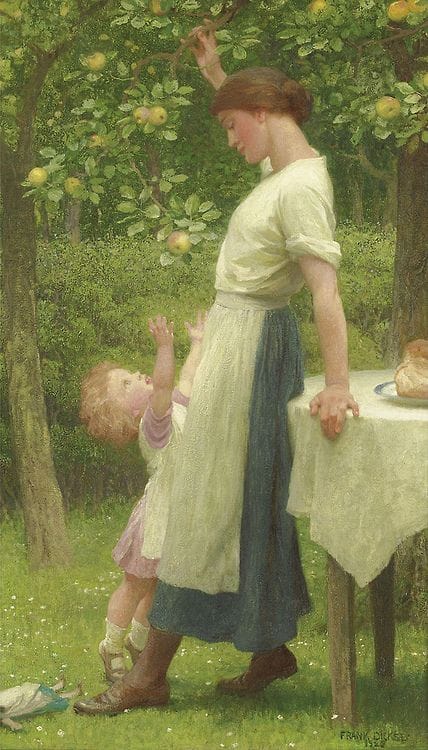Eve to Her Daughters - on Adam.

Australians predominantly believe in and are proud of their egalitarian, 'Golden soil' country, where everyone is united, at peace, and 'toils with hearts and hands'.
But are these beliefs correct?
Welcome 😊 to Part 1 of my analysis 📖 on Judith Wright's Eve to Her Daughters 👩👧 (1966). In particular, I'll focus on how she criticises Australian 🦘🇦🇺 cultural assumptions by using the metonymic extension of Adam.
Eve to Her Daughters, a modernist poem, exemplifies this by employing the biblical allusion of Adam and Eve, where they sin by eating from the Tree of Knowledge and are consequently exiled from Eden by God.
We'll come to understand how:
Part 1: Wright uses Adam as a metonym for Australian society to criticise our desire for relentless progress – we are not truly at peace.
Part 2: Wright uses Adam as a metonym for Western society to criticise the common belief amongst Australians that Western ideals are superior to those of other cultures.
Part 3: Wight uses Adam as a metonym for the patriarchy to criticise our patriarchal system in Australia for dismissing the female experience – we are not truly egalitarian.
Ultimately, Wright voices her hard-hitting opinions on Australian society through Eve to Her Daughters.
Adam's desire creates uncontrolled progress
Wright challenges modern Australia's desire for continued progress as destructive.
She employs Adam as a metonym of modern Australia to do so.
The definitive diction littered throughout the extract (e.g. "had to", "must") depicts Adam's desire to improve and reach "perfectibility".
"He had discovered a flaw in himself" after being kicked out of Eden", and "he has to make up for it". Thus, Adam decides the earth "must be made a new Eden". These definitive and absolute words highlight modern Australia's, represented by Adam's, for unlimited improvement – we have to achieve perfection, no matter if it forces us to neglect our Judeo-Christian values, represented by "Eden".
And so, to make up for his fall out of Eden, Adam employs pragmatics of Western society: "Central heating, mechanical harvestors, domesticated animals, combustion engines".
The combination of caesura and enjambment in Adam's development creates a rushed and stressed reading pattern, one that is mimetic of the fast-paced progress of modern Australia. Wright criticises this uncontrolled progress for corrupting society.
This notion is also a running theme throughout Wright's life, as outlined in her essay, Waste, Wilderness, History:
"Humanity's dreams have shrunk to more realistic proportions, and our politicians now want to sell as much coal, iron, and uranium as possible."
Through highlighting Adam's "addiction" to advancement, Wright criticises modern Australia's unrelenting desire for progress, and dissolves the common assumption that modern Australia is at peace with herself.
Wanna hear more about 'Eve to Her Daughters'? Subscribe to get updates! It's free, and I would love to hear your thoughts as well. 🤗 🤗
